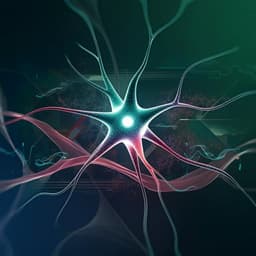
Medicine and Health
Feed your microbes to deal with stress: a psychobiotic diet impacts microbial stability and perceived stress in a healthy adult population
K. Berding, T. F. S. Bastianssen, et al.
Discover how a psychobiotic diet rich in prebiotics and fermented foods can significantly reduce stress levels in healthy adults. This groundbreaking study conducted by Kirsten Berding and colleagues shows that dietary changes can enhance gut-brain communication and improve overall mental well-being. Join us to explore the fascinating connection between your diet and mental health!
Related Publications
Explore these studies to deepen your understanding of the subject.







